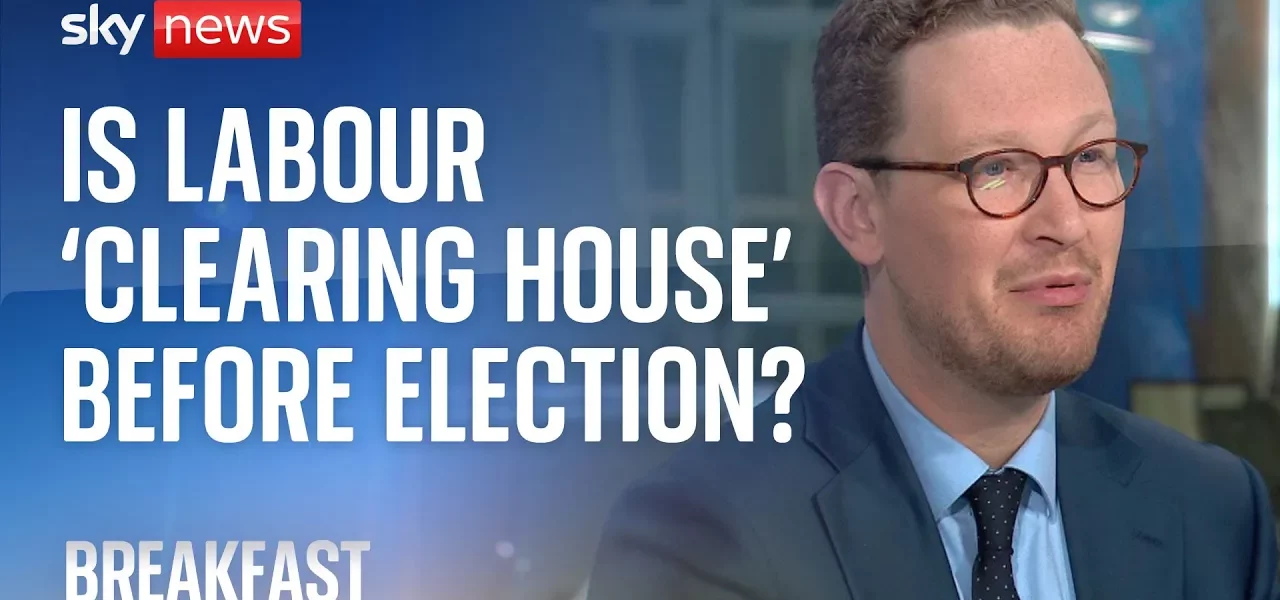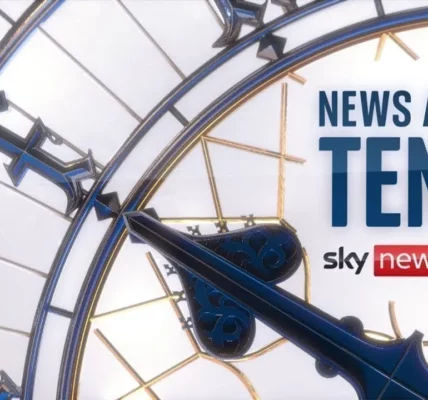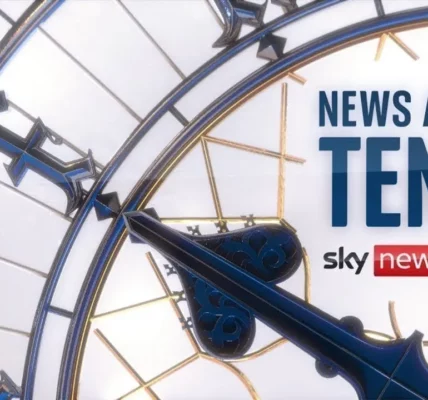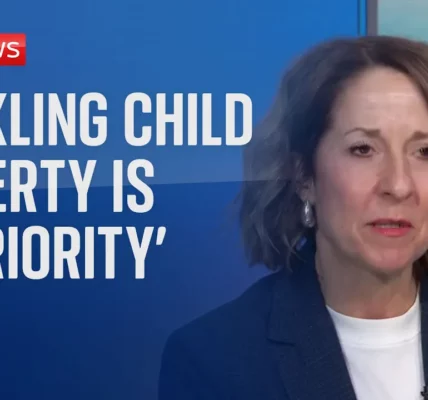Discussion with Darren Jones: Labour’s Approach to Taxation and Public Services

In a revealing conversation, Darren Jones, Shadow Chief Secretary to the Treasury, addresses key issues surrounding Labour’s taxation policies, the future of public services, and the implications of the upcoming election. As the political landscape shifts, Jones provides insights into Labour’s stance against raising taxes on working people and critiques the Conservative Party’s fiscal strategies.
Introduction
The political arena in the UK is heating up as the general election approaches, with significant discussions surrounding taxation and public services. In this context, Darren Jones represents the Labour Party’s commitment to not raising taxes on working people while underlining the challenges posed by the Conservative Party’s fiscal policies. This article delves deeper into the key points raised during the discussion, providing a comprehensive overview of Labour’s plans and the implications for voters.
Labour’s Taxation Policies
Darren Jones emphasizes that Labour has no plans to raise taxes on working people, a stance that has been reiterated multiple times during the campaign. This commitment is critical as it resonates with the electorate who are already facing significant financial burdens.
Clarification on Tax Increases
Jones responds to accusations from the Conservative Party regarding Labour’s tax policies by stating:
- Labour’s focus is on protecting working-class taxpayers.
- The party aims to avoid raising Value Added Tax (VAT) during the campaign.
- Taxation discussions will consider various income levels, including pensioners.
The Conservative Party’s Tax Burden
Jones highlights the current tax burden on working people, stating it is the highest in 70 years, attributing this to Conservative policies. He argues that:
- The Conservative government has introduced numerous unfunded spending commitments.
- These commitments could lead to significant borrowing, estimated at £70 billion annually.
- Such financial strategies could result in increased interest rates, affecting mortgage and rent payments for families.
Impact on Public Services
Amid discussions about taxation, the future of public services remains a pressing issue. Jones outlines Labour’s approach to maintaining and improving public services while addressing potential funding challenges.
Commitment to Public Services
Jones asserts that Labour is committed to protecting essential public services, although he acknowledges the need for a comprehensive spending review:
- Defence and healthcare are areas identified as having ‘protected status’.
- Proposals include hiring additional teachers and healthcare appointments to boost the workforce.
- Labour’s policies are designed to be fully funded and costed to avoid the pitfalls of Conservative strategies.
Challenges Ahead
Jones candidly discusses the challenges Labour would face if elected, particularly given the state of the economy inherited from the Conservatives. This includes:
- Addressing public service demands without compromising quality.
- Ensuring fiscal responsibility while meeting electoral promises.
- Engaging with various stakeholders to inform policy decisions.
Current Political Climate and Candidates
The conversation also touches on the political climate as the Labour Party prepares for the upcoming election, including discussions around key candidates.
Diane Abbott’s Position
Jones provides updates on Diane Abbott’s status within the party, noting:
- Abbott has had the whip restored and is a member of the Parliamentary Labour Party.
- Decisions regarding her candidacy will be made in consultation with the National Executive Committee.
Candidate Selection and Issues
Jones acknowledges the complexity of candidate selections, especially with various allegations and suspensions being reported in the media. He emphasizes the need for clarity and prompt decision-making:
- All outstanding issues regarding candidates will be processed swiftly.
- Labour aims to have candidates finalized ahead of the election.
Conclusion
In conclusion, Darren Jones articulates Labour’s strategic approach to taxation, public services, and the importance of the upcoming election. His insights reflect a party ready to engage with voters on critical issues while navigating the complexities of the political landscape. As the election date approaches, Labour’s commitment to not raising taxes on working people and protecting public services will be pivotal in shaping voter sentiment. For those interested in understanding the future of the UK under Labour, this election represents a crucial moment. Stay informed, engage in discussions, and make your voice heard on polling day.
“`




